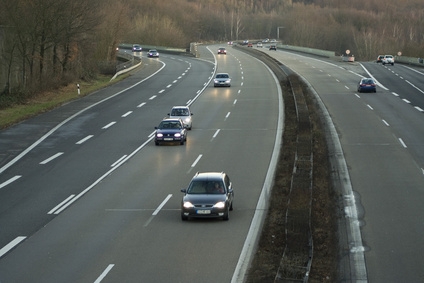
Determining the cause of vibration in a moving vehicle can be a frustrating endeavor. Because there are so many moving parts in a vehicle, tracking down the source of the vibration can prove difficult and time consuming. Narrowing down the possible causes before beginning inspection of the vehicle will help to determine the source of the problems and allow you to identify them through the process of elimination.
A wheel becomes out of balance when one section of the wheel is heavier than the rest. This causes uneven centrifugal force in the wheel as the speed of the vehicle increases, which leads to vibration. Wheels can become unbalanced if the weights used for balance fall off, or uneven wear in the tire occurs. From the steering wheel, you can often feel wheel vibration from an out-of-balance condition.
If a vehicle has had its ride height altered by raising or lowering suspension components, it can cause the driveline to become misaligned. This causes incorrect angles in the u-joints where the driveline is connected to the transmission and rear axle, resulting in vibration at highway speeds.
U-joints connect the driveshaft to the transmission and rear axle yokes. When these joints wear out they become loose, and the driveshaft moves around in the yokes. This movement of the driveshaft within the yokes causes vibration when the car operates at higher speeds. Worn u-joints can present a serious safety hazard and you should replace them immediately.
A vehicles exhaust system has natural sound oscillations that travel along the exhaust pipe as the motor operates. At certain speeds, this can cause the exhaust system to vibrate if parts intended to secure the exhaust system have broken or failed. Broken hangars, rubber mounts or bent exhaust pipes can allow the exhaust system to contact the vehicle frame or body and cause vibrations.
Motor mounts secure the motor within the frame of the vehicle. When motor mounts break, they no longer hold the motor securely, and the motor moves around within the vehicle. This can cause various parts of the motor to contact parts of the vehicle frame or inner body, resulting in vibrations at varying speeds. Broken motor mounts can cause loud banging or clunking noises when putting the vehicle into gear or upon acceleration.